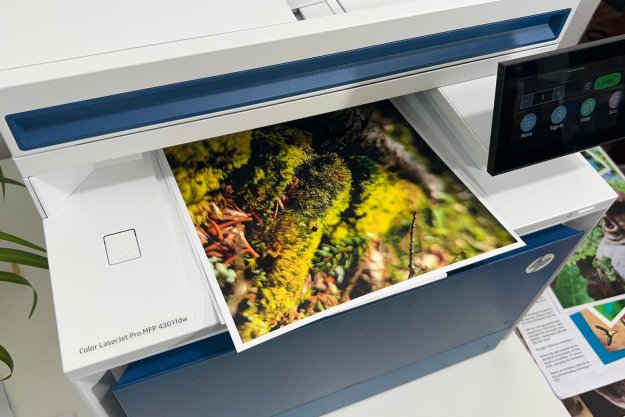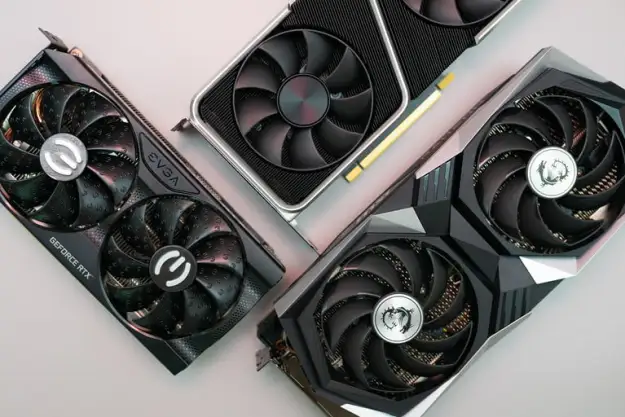“Built as reviewed, the AW-series is a powerful and pretty star on the entertainment notebook scene.”
- Gorgeous LED display; elegant design; Blu-ray burner and 1 TB of storage are great assets for HD enthusiasts
- Poor battery performance; Not quite powerful enough to be a gaming machine; Ultra-wide profile mocks most laptop sacks
Summary
In a world in which computer manufacturers seem to be moving at light speed toward smaller, humbler laptops (see: the netbook phenomenon), it’s nice to see at least one vendor throw caution to the wind and deliver a giant rig that is, in effect, a portable home theatre system. Sony’s top-of-the-line VAIO sports a mammoth, ultra-wide 18.4-inch display and all of the hardware and accessories necessary to turn it into a mobile entertainment powerhouse. Just be prepared to buy a new carrying case, as this ultra-wide machine will likely split the seams of your existing notebook bag.

The VAIO AW looks a bit like one of Sony’s own cute little VAIO W notebooks, only several times the size and weight.
Sporting the VAIO line’s iconic glossy lid (in black or gray) with silver lettering, the AW’s primary highlight is its enormous, ultra-wide 18.4-inch LED backlit display, which has a resolution of 1920×1080 and an aspect ratio of 16:9. This is in contrast to standard high-resolution notebook displays, which are 1920×1200 and have a 16:10 aspect ratio. The different dimensions and resolution have a noticeable impact on widescreen movies, eliminating a good-sized chunk of the black bars that often eat up as much as half of the real estate on more traditional notebook screens.
Below the display, the machine’s interior is clean and Spartan—typical of a Sony laptop. A row of touch-sensitive media keys and a fingerprint reader sit above a full-sized keyboard and numeric pad. Residing just below the keyboard is a comfy, rubberized wrist rest and a standard touchpad. The only light to be seen comes from a thin band on the lid’s thick and sturdy hinge that glows green when charging and orange when the machine is running off the battery.
But while the VAIO is a fine accomplishment in minimal, functional industrial design, it poses some problems for those who might want to haul it around with them. Its 1.5-inch thickness and 11.4-inch depth are perfectly manageable, but few laptop bags will be able to accommodate the AW’s enormous 17.2-inch width. (Most laptop carriers are designed to accommodate machines no wider than about 16-inches—the standard width of a notebook with a 17-inch screen). Some people may also take issue with the AW’s 8.8-pounds of mass, which includes its battery but not its weighty power brick.
To be fair, Sony designates AW-series machines as desktop replacements. Still, the systems’ bulk might surprise some consumers who have previously gotten away with toting 17-inch notebooks around town.

Our test unit didn’t have the sort of horsepower necessary to really do justice to the latest 3D games, but the real test for the AW is in how it performs as a multimedia machine, the purpose for which it was built.
A 2.53GHz Intel Core2 Duo processor plus 4GB of DDR2 800MHz RAM and an NVIDIA GeForce 9600M GT graphics card provide all the power necessary to edit high-definition video and efficiently multitask using several resource intensive applications. Plus, a pair of quick, 512GB hard disks (working together in RAID 0 format) deliver a terabyte of space for storage-intensive HD video files and high-resolution still images.
We’ve already mentioned the unit’s big, beautiful LED screen a couple of times, but it’s worth calling out again here to mention that it uses Adobe’s RGB color correction system and the same XBRITE-FullHD technology found in Sony’s high-end living room panels. Simply put, it makes movies look great.
Blacks are lush and deep; we saw plenty of detail throughout the darkly lit movie The Dark Knight. And colors seem pop off the screen. Betty Draper’s bright red lipstick looked luscious as we watched Mad Men, and her wavy gold hair appeared so silky and defined that we almost believed we could reach through the screen and run our fingers through it.
Augmenting the movie-watching experience are a quartet of crisp and clear single-watt stereo speakers scattered across the base of the machine, as well as a two-watt subwoofer. These tiny cones are obviously no substitute for a decent home theatre setup, but they make for a more than adequate integrated sound system if you happen to be in a quiet environment and sitting only a few feet away.
A full-sized Windows Media Centre remote, mini-RF port and converter cable (to jack into television signals), and Blu-ray burner complete the impressive multimedia/entertainment experience offered by the AW.

It’s never a good sign when you open up a new laptop and the first thing you see is a giant sticker suggesting that you purchase a second, larger capacity battery. Still, given the AW’s big, bright, energy sucking display, we suppose one might have expected it.
We couldn’t quite squeak out 90 minutes of movie playback on a fully-charged battery, which means that you’d be unable to watch a film on a plane (though, given the laptop’s size, it’s unlikely you’d even have room to open it).
It fared considerably better with the optical drive disengaged and the screen dimmed, offering up about 140 minutes of juice. That’s not exactly on par with the system’s smaller, more energy efficient brethren, but certainly enough to get some work done.
Ins and Outs
The AW’s massive display makes for some expansive edges, and Sony’s engineers have put them to good use by providing plenty of places to plug stuff in.

ESATA and DisplayPort inputs are noticeably absent, but the AW’s otherwise robust jack pack ought to satisfy most users’ needs.
Conclusion
Most consumers might be in the market for smaller machines that they can toss into a briefcase or even a purse, but there are still plenty of places in which a big and beautiful multimedia book like Sony’s AW might be preferable, including student dorms, bedrooms, and home offices.
A basic AW model sells for $1,499, but our test rig, which, in our estimation, had all of the most desirable upgrades (including more storage, a bit more RAM, a higher-resolution screen, and a Blu-ray burner) sells for the still relatively affordable price of $2,039. You can upgrade many of the components even further and arrive at a $3,289 machine, but we don’t see the point if your primary use is simply entertainment (though you might want to consider that second battery).
Built as reviewed, the AW-series is a powerful and pretty star on the entertainment notebook scene.
Pros
- Absolutely gorgeous 18.4-inch LED display
- Blu-ray burner and 1 TB of storage are great assets for HD video enthusiasts
- Elegant design will appeal to consumers who don’t want their big rig to scream big geek.
Cons
- Poor battery performance means you need to stick close to power outlets
- Not quite powerful enough to be a sincere gaming machine
- Ultra-wide profile mocks most laptop sacks
Editors' Recommendations
- 9 best laptops of 2024: tested and reviewed
- The 10 best monitors for 2024: tested and reviewed
- 9 best processors for PC gaming: tested and reviewed
- Best 14-inch laptops for 2024: tested and reviewed
- 10 best gaming monitors of 2024: tested and reviewed




